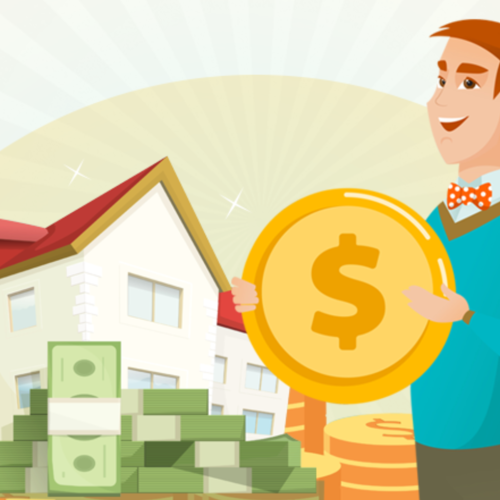When selling your Bay Area home, one of the most important factors to consider is pricing. Setting the right price can mean the difference between a quick sale and a property on the market for months. In this article, we will explore three crucial things that every seller needs to know about pricing their home. From being realistic and analyzing the competition to hiring the right professionals, these tips will help you make informed decisions and maximize your chances of a successful sale.
1. Be Realistic and Conservative in Pricing Your Home in the Bay Area
One common misconception among sellers is that pricing their home too high will result in a higher selling price. However, this couldn’t be further from the truth. Overpricing your home can actually lead to poor performance in the market, as it may lose its appeal after being on the market for an extended period.
To ensure you set a realistic and competitive price for your home, it’s essential to seek the guidance of an experienced real estate agent. A professional agent will have in-depth knowledge of the local market and can provide valuable insights into pricing trends. They will help you choose the correct price for your house, even if it may seem a little lower than your expectations.
In fact, pricing your home slightly below market value can often be advantageous. Homes priced below market value tend to attract more offers, leading to potential bidding wars that can drive up the final sale price. So, don’t be discouraged if the suggested price is lower than what you initially had in mind. Trust your agent’s expertise and consider the long-term benefits of attracting multiple offers.
However, it’s important to note that pricing your home too low also comes with risks. This strategy works best for properties in desirable locations and excellent conditions. If your Bay Area home doesn’t meet these criteria, you should be cautious about pricing it too low. In such cases, consulting with a professional appraiser and real estate agent can help you strike the right balance and set an optimal price.
2. Analyzing the Competition for Accurate Pricing
Before finalizing the price of your home, it’s crucial to perform a thorough analysis of the competition. This analysis involves comparing your property to similar homes in terms of size, condition, and features. These comparable sales, also known as “comps,” provide valuable insights into the market value of your home.
When assessing comps, appraisers typically look at recently listed properties in the same neighborhood. These comparables should ideally be no older than three months, unless you’re in a rural or low-density area where you may need to expand your search radius.
However, it’s important to understand that not all homes with similar characteristics will have the same price. Factors such as location, school districts, tax districts, and unique features can significantly impact the value of a property. For instance, a house on the same street might have a different price due to a more desirable school district or specific amenities that cater to buyer preferences.
To accurately compare your home with others on the market, dig deeper into the reasons behind each property’s pricing. Consider the specific factors that contribute to its value, such as recent renovations, energy-efficient upgrades, or other appealing features. By understanding the nuances of the market and the reasons behind pricing variations, you can better position your home for a successful sale.
3. Seek Professional Guidance from Real Estate Agents and Appraisers
Pricing your home is a complex process that requires expertise and in-depth knowledge of the local market. While the final decision lies with you as the seller, it’s crucial to seek guidance from professionals who can provide valuable insights and help you make informed choices.
Real estate agents and appraisers play different roles in the pricing process. While agents focus on selling properties and have a vested interest in getting a higher sale price, appraisers are impartial valuation professionals who follow strict guidelines to provide an unbiased opinion of a property’s value.
When selecting a real estate agent, look for someone with extensive experience in your local market. A knowledgeable agent will have a deep understanding of pricing trends, buyer preferences, and effective marketing strategies. They can provide valuable advice on setting the right price and help you navigate negotiations with potential buyers.
Appraisers, on the other hand, are state-credentialed professionals who assess the value of properties based on a rigorous process. Their unbiased opinions rely on factors such as recent sales data, property characteristics, and market conditions. Working with an appraiser can help you gain a more objective perspective on the value of your Bay Area home and provide additional credibility to your pricing strategy.
While realtors and appraisers offer different perspectives, it’s essential to collaborate with both to ensure a well-rounded approach to pricing your home. By leveraging their expertise, you can make more informed decisions that align with market conditions and maximize your chances of a successful sale.
How to Determine If Your Home is Priced Right
Setting the right price for your home is a delicate balance. Even with expert guidance and thorough research, it can be challenging to know for sure if you’ve priced your home correctly until you receive offers and complete transactions.
Here are a few indicators to help you determine if your Bay Area home is priced appropriately:
- Time on the Market: If your home sells within a few days of listing, it might be an indication that the price was set too low. On the other hand, if your property sits on the market for months without much interest, it could be a sign of overpricing.
- Steady Activity: Ideally, your home should attract consistent interest and showings throughout the listing period. If you experience steady activity and receive multiple offers, it suggests that your home is priced attractively.
- Negotiations: Successful negotiations with potential buyers can also indicate that your home is priced correctly. If you receive offers close to your asking price and can negotiate favorable terms, it’s a positive signal that you’ve found the right price point.
Remember, pricing your home is not an exact science, and adjustments may be necessary based on market feedback. Stay open to feedback from your real estate agent and be prepared to make necessary tweaks to ensure your home in the Bay Area is priced competitively.
By following these crucial tips, you can navigate the home pricing process with confidence and set the stage for a successful sale.
Prime Single Family Homes for Sale in Silicon Valley
2
3
4
5
6
7
8
9
10
11
12
13
14
15
16
17
18
19
20
21
22
23
24
25






